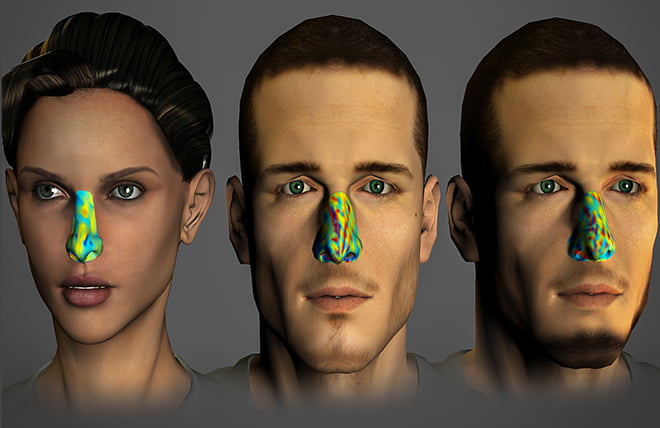Israeli scientists have developed a “fingerprint” test based on humans’ sense of smell, which is unique to each and every one of us. The good news is that this “olfactory fingerprint” could potentially do more than just identify individuals by their sense of smell; it could help in the early detection of Alzheimer’s’ and Parkinson’s, as well as in matching organ and bone marrow donors.
Each of us has, in our nose, about 6 million smell receptors of 400 different types. The distribution of these receptors varies from person to person – so much so that each person’s sense of smell may be unique. That’s how Weizmann Institute researchers can precisely characterize an individual’s sense of smell.
SEE ALSO: Sense Of Smell Is Physiological, Not Psychological, Study Shows
The implications of this study, which was recently published in the scientific journal “Proceedings of the National Academy of Sciences (PNAS),” reach beyond the sense of smell alone, and range from olfactory-based early diagnosis of degenerative brain disorders to a non-invasive test for matching donor organs.
The method is based on how similar or different two odors are from one another. In the first stage of the experiment, volunteers were asked to rate 28 different smells according to 54 different descriptive words, for example, “lemony,” or “masculine.”
SEE ALSO: Israeli Scientists Teach Humans To Sense With ‘Whiskers’
Members of Prof. Noam Sobel’s lab at Israel’s Weizmann Institute developed a complex mathematical formula for determining, based on the subjects’ ratings, how similar any two odors are to one another. The strength of this formula, according to the researchers, is that it does not require the subjects to agree on the use and applicability of any given verbal descriptor. Thus, the fingerprint is odor-dependent but descriptor and language independent.
Sign up for our free weekly newsletter
SubscribeThe 28 odors make for 378 different pairs, each with a different level of similarity. Using this highly sensitive tool, the scientists found that each person indeed has a unique pattern.

The “olfactory fingerprint” of the person in the middle is very different from that of another person (left)
Assessing matches for organ donation
Could this finding extend to millions of people? The researchers say their computations show that 28 odors alone could be used to “fingerprint” some 2 million people, and just 34 odors would be enough to identify any of the 7 billion individuals on the planet.
The research also suggests that our olfactory fingerprint may tie in with another system in which we all differ – the immune system. For example, an immune antigen called HLA, used to assess matches for organ donations, is correlated with certain olfactory fingerprints.
“Fingerprinting” our sense of smell could also be developed into methods for the early detection of such diseases as Parkinson’s and Alzheimer’s, and it could lead to non-invasive methods of initial screening as to whether bone marrow or organs from live donors are a good match. This part of the study was conducted with researchers from Israel’s Sheba Medical Center.
Photos: Eneas De Troya , Weitzman Institute, Dennis Wong
Related posts

Israeli Medical Technologies That Could Change The World

Harnessing Our Own Bodies For Side Effect-Free Weight Loss

Missing Protein Could Unlock Treatment For Aggressive Lung Cancer





Facebook comments